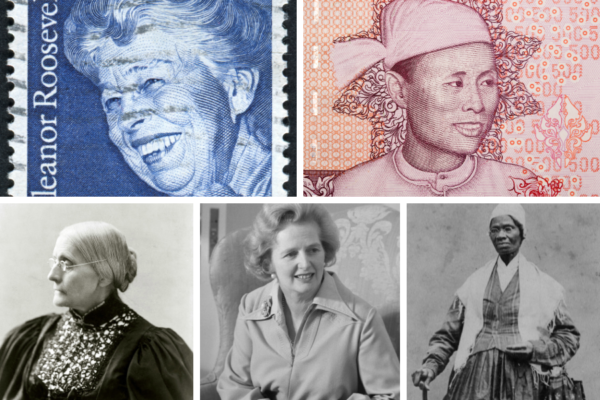Regardless of one's niche or expertise, public speaking possesses the transformative power to inspire, ignite change, and drive action. Whether you're a coach, expert, or activist, the words you share can touch hearts and reshape realities. As we delve into the speeches of these five trailblazing women, each deeply rooted in passion, commitment, and conviction, their stories become a testament to the immense impact a speaker can have.
These iconic figures not only shifted paradigms but also left an indelible mark on history. Let their narratives motivate you to harness your own passion and, in turn, captivate and inspire your audience. Dive in and discover their audience, the legacy they've left, the stories that shaped them, and cinematic explorations of their lives. 🎙️✨
Let’s dive in!
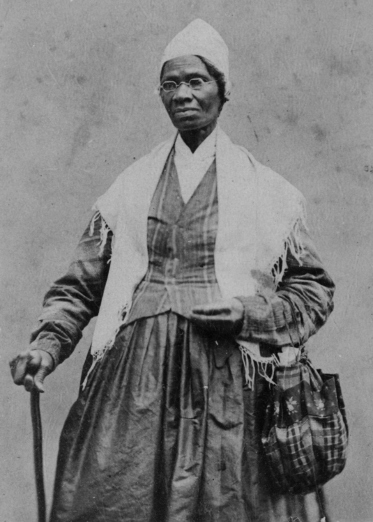

#1
"Ain't I A Woman?"
By Sojourner Truth (1851)
Women's Rights Convention in Akron, Ohio. The convention was focused on women's rights, and Truth's speech highlighted the intersection of women's rights and the rights of Black people, emphasizing her own experiences as a Black woman. Her powerful words confronted prevailing stereotypes of both race and gender.
Elevated the discourse on women’s and civil rights and became a cornerstone speech in both movements.
Sojourner Truth was an African-American abolitionist and women's rights activist. Born into slavery in Swartekill, Ulster County, New York, in 1797, she escaped to freedom with her infant daughter in 1826. After going to court to recover her son, she became the first black woman to win such a case against a white man.
Sojourner was originally named "Isabella Baumfree" (or "Isabella Bomfree"). In 1843, she felt called to preach the truth and spread the message about the abolition of slavery and the rights of women. As a symbol of this calling and her mission, she adopted the name "Sojourner Truth." The name "Sojourner" reflects her journey in spreading the truth, and "Truth" represents the truths she felt compelled to share. Through her powerful speeches, including the famous "Ain't I a Woman?" address, she became a prominent figure in both the abolitionist and women's rights movements.
Sojourner Truth's legacy continues to resonate powerfully today. As a groundbreaking advocate for both abolition and women's rights, her journey from an enslaved woman to a vocal proponent for change stands as a testament to resilience and transformation.
Her contributions have been honored with memorials, including a prominent statue in the U.S. Capitol's Emancipation Hall and a commemorative U.S. postage stamp. Today, schools teach her vital role in American history, and her influence is felt in movements like Black Lives Matter. Whether through books, movies, or current social justice efforts, Truth's enduring message of equality and justice continues to inspire and challenge society.
“The Life and Legend of Sojourner Truth” (2000) Documentary
"Truth" (2018): Animated short film of Sojourner delivering her iconic speech.
“Sojourner” (1975) A historical drama of Sojourner’s life.
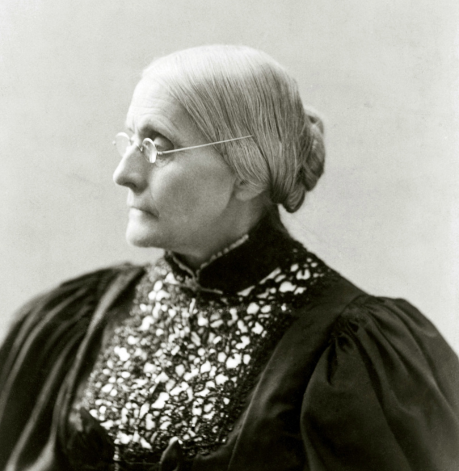

#2
"On Women's Right to Vote"
By Susan B. Anthony (1873)
Courtroom in Canandaigua, New York. Susan B. Anthony delivered the speech during her trial after she was arrested for illegally voting in the 1872 Presidential election. By voting, she directly challenged the existing legal framework that denied women this right. Her speech was a powerful argument against the prevailing legal and societal norms that restricted women's rights, particularly their right to vote. It was addressed not only to the court but also to the broader public, advocating for women's suffrage and challenging the constitutionality of denying women the right to vote.
Instrumental in the women's suffrage movement, paving the way for the 19th Amendment.
Susan B. Anthony, born in Adams, Massachusetts, was a pivotal figure in the U.S. women's suffrage movement. Hailing from a Quaker family passionate about social justice, she initially championed causes like abolition and temperance.
However, facing gender-based discrimination in these movements, she redirected her focus towards women's rights. Collaborating with figures like Elizabeth Cady Stanton, Anthony co-founded the National Woman Suffrage Association in 1869 and contributed significantly to the "History of Woman Suffrage," documenting the journey towards women's voting rights.
Though Susan B. Anthony did not live to see the ratification of the Nineteenth Amendment in 1920, which granted women the right to vote, her tireless efforts laid the groundwork for its eventual passage.
Susan B. Anthony continued her activism well into her later years. She passed away in 1906 in Rochester, New York. Her legacy as a pioneering women's rights activist remains influential and is commemorated in various ways, including the Susan B. Anthony dollar coin issued by the U.S. Mint in 1979.
In essence, Susan B. Anthony was a tireless advocate for women's rights, particularly the right to vote, and her activism paved the way for significant advancements in gender equality in the U.S.
"The Mother of Us All" (1947): An opera by Virgil Thomson to a libretto by Gertrude Stein, which chronicles the life of Susan B. Anthony. Various productions might have been filmed or adapted for television.
“Not for Ourselves Alone: The Story of Elizabeth Cady Stanton & Susan B. Anthony" (1999): A documentary by Ken Burns that provides an in-depth look at the lives of these two pioneering women's rights activists.
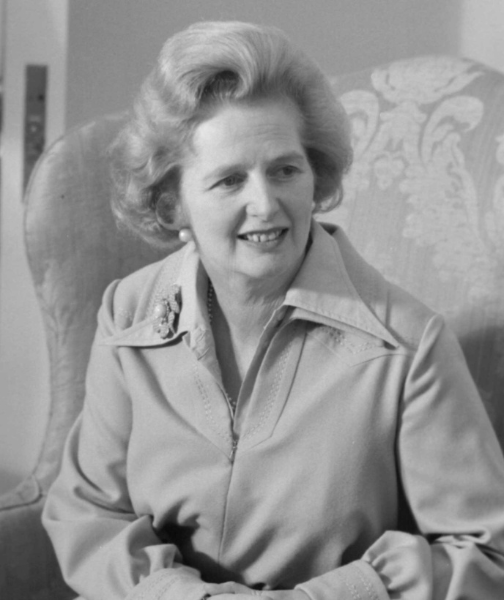

#3
"The Lady’s Not for Turning"
By Margaret Thatcher (1980)
The Conservative Party Conference in Brighton, England. Margaret Thatcher, then the Prime Minister of the United Kingdom, delivered this speech to her political party's members and supporters, as well as to the broader British public via media coverage.
The speech is remembered for its strong assertion of her commitment to her economic policies, despite facing criticism and calls for a U-turn in direction. The line "The Lady’s Not for Turning" became one of her most famous quotations, emphasizing her resolve and determination to stick to her political course.
Strengthened Thatcher's reputation for steadfastness and solidified Thatcher's position within the Conservative Party, ensuring that her policies, often referred to as "Thatcherism," became the dominant guiding principles for the party during her tenure. This further marginalized the "wets" in her party – those who were perceived as more moderate or liberal.
Margaret Thatcher, born in Grantham, Lincolnshire, rose to prominence as the UK's first female Prime Minister, serving from 1979 to 1990. A chemistry graduate from Somerville College, Oxford, she later trained as a barrister specializing in tax law. Her unique scientific background and strong Methodist beliefs set her apart in the political realm.
Although initially unsuccessful in her bid for Dartford, by 1959, she secured a seat as the MP for Finchley. Climbing the ranks, Thatcher became the Conservative Party leader in 1975. Her tenure as Prime Minister, the longest for a British PM in the 20th century, saw transformative domestic and foreign policies.
Thatcher's unyielding stance, epitomized by this speech, played into the broader cultural narrative of the 1980s. The portrayal of Thatcher as the "Iron Lady" was solidified, and her policies became synonymous with a brand of resolute individualism and self-determination, which had cultural reverberations, influencing everything from work ethic to popular culture.
“The Crown” (2016-2023): A TV series that depicts the relationship between Margaret Thatcher and Queen Elizabeth.
“The Iron Lady" (2011): A biographical film starring Meryl Streep as Margaret Thatcher. Streep won an Academy Award for her portrayal.
“Margaret" (2009): A British television film that focuses on Thatcher's life and political career, especially her final days in power.
“Margaret Thatcher: The Long Walk to Finchley” (2008): A TV movie of Thatcher’s life in the 50’s from being a chemist to her attempts of being selected for Parliament.
“The Falklands Play” (2002): A TV movie of how Thatcher handled this crisis.
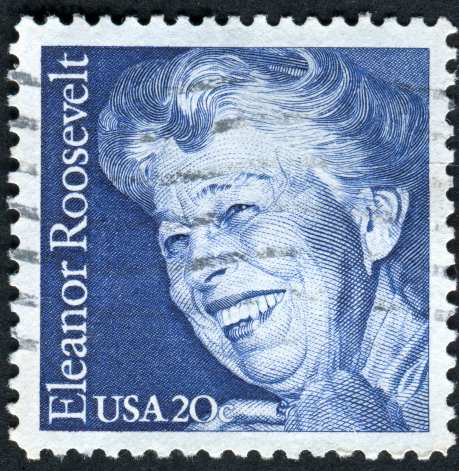

#4
"First Lady of the World"
By Eleanor Roosevelt (1945)
The delegates of the member nations at the United Nations General Assembly. Eleanor Roosevelt spoke as the chairperson of the preliminary commission of the United Nations, which was drafting the Universal Declaration of Human Rights. Her speech emphasized the significance of human rights and the importance of international cooperation in upholding these rights.
Given her role and the context, this speech was not only directed at the assembled delegates but also to the broader global audience, signaling the commitment to universal human rights in the post-World War II era.
Helped lay the groundwork for the Universal Declaration of Human Rights.
Eleanor Roosevelt, a prominent American political figure and activist, served as the First Lady from 1933 to 1945, making her the longest-serving in the role. Born into an influential New York family, she was the niece of President Theodore Roosevelt. After facing early personal tragedies, including the loss of her parents, she married Franklin D. Roosevelt in 1905.
Throughout FDR's presidency, Eleanor revolutionized the First Lady's role, engaging actively in politics and championing social causes. Following FDR's passing, she continued her advocacy, playing a pivotal role in drafting the Universal Declaration of Human Rights as a UN delegate. Beyond politics, she wrote a daily column, "My Day," and authored numerous books, including her autobiography.
Eleanor Roosevelt, the trailblazing First Lady, remains a monumental figure in 20th-century American politics. Transforming the First Lady role from ceremonial to politically active, she championed human rights, social reform, and diplomacy. Eleanor played a pivotal role in drafting the Universal Declaration of Human Rights, a cornerstone of global human rights activism.
Domestically, she was a staunch supporter of civil rights, collaborating with luminaries like Mary McLeod Bethune and W.E.B. Du Bois, and driving initiatives during the Great Depression. Her writings, including the daily column, "My Day," connected her to the broader public, while institutions like the Eleanor Roosevelt Center at Val-Kill continue her vision. Remembered as a tireless advocate and beacon of hope, Eleanor's legacy inspires future activists, leaders, and global citizens.
“The First Lady” (2022): A TV show focusing on Eleanor played by Gillian Anderson, Michelle Obama played by Viola Davis, and Lady Bird Johnson played by Michelle Pfeiffer
“Hyde Park on Hudson” (2012): Historical drama/comedy starring Bill Murray as Roosevelt and Olivia Williams as Eleanor.
“Warm Springs" (2005): Focus on Roosevelt’s battle with polio starring Cynthia Nixon as Eleanor and Kenneth Branagh as Roosevelt.
Eleanor and Franklin" (1976): A TV movie based on the early lives of Eleanor and Franklin D. Roosevelt. Starring Jane Alexander as Eleanor.
“The Eleanor Roosevelt Story” (1965): Documentary
There are many other older films listed on IMDB.
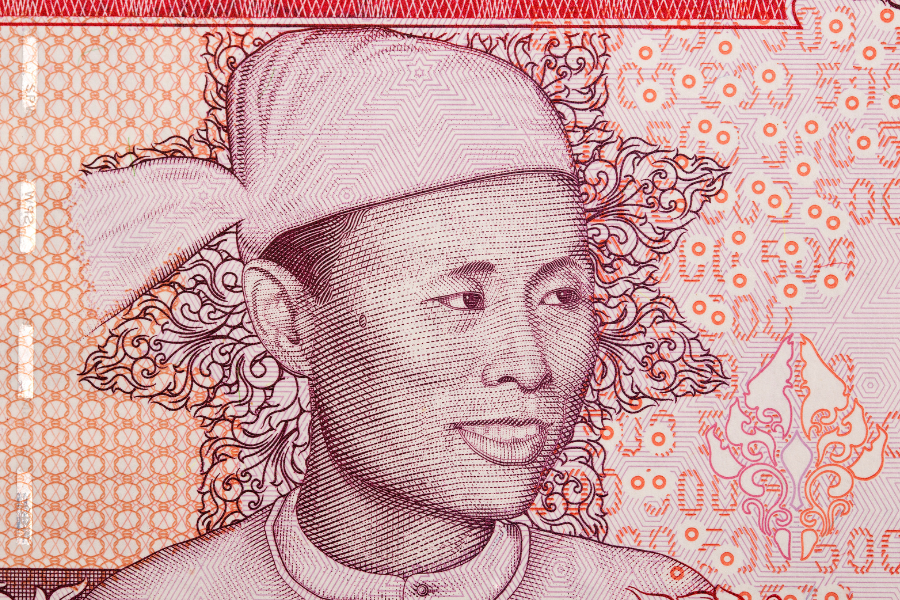

#5
"Freedom from Fear"
By Aung San Suu Kyi (1990)
A massive crowd at the Shwedagon Pagoda in Yangon, Myanmar. Aung spoke about the struggle for democracy and human rights in Myanmar, emphasizing non-violence and the need to overcome fear to achieve true freedom. The phrase "freedom from fear" has since become closely associated with her and her advocacy for democracy and human rights.
Aung San Suu Kyi's "Freedom From Fear" speech magnified the world's attention on Myanmar's quest for democracy. The address invigorated the Burmese, anchoring them to the democratic cause against the military junta's tyranny. Drawing parallels to peaceful leaders like Gandhi and Martin Luther King Jr., Aung championed non-violent protest.
Her powerful message catalyzed international sanctions against the regime and culminated in her Nobel Peace Prize win in 1991. Although she faced prolonged house arrest, her words spurred ongoing resistance. Subsequent years saw Aung play pivotal roles in Myanmar's political shifts. However, her recent handling of the Rohingya crisis has sparked global criticism, complicating her legacy. In essence, her speech was foundational for Myanmar's pro-democracy narrative.
Aung San Suu Kyi, born in Yangon, is the daughter of General Aung San, a key figure in Myanmar's independence from British rule. After his assassination when she was two, her mother, Khin Kyi, took up diplomatic roles, leading Aung to be educated in Myanmar, India, and later at Oxford in the UK.
Returning to Myanmar in 1988 during political turmoil and inspired by figures like King Jr. and Gandhi, became a pro-democracy activist. Facing about 15 years of house arrest over two decades, she was awarded the Nobel Peace Prize in 1991. After her release, she entered politics, leading her party, the NLD, to victory in 2015. Unable to be President, she was designated "State Counsellor." However, a 2021 military coup detained her and other NLD leaders.
A once universally acclaimed icon, Aung's legacy is now intricate and frequently debated.
"The Lady" (2011): A biographical film that tells the story of Aung San Suu Kyi as she becomes the core of Burma's democracy movement. Michelle Yeoh plays the lead role.
These incredible women have shown us the transformative power of words when delivered with heartfelt passion, unwavering commitment, and deep-seated conviction. As public speakers, especially coaches and experts guiding others on their journeys, you too can leave an indelible mark on your audience, shaping thoughts and influencing change. Now, after diving deep into these inspiring speeches, I turn to you. Which of these famous women resonates most deeply with you? How has a passionate speech influenced your personal or professional journey? I'd love to hear your stories, reflections, and insights. Share your thoughts below, and let's continue this dialogue, celebrating the enduring power of impactful public speaking. 🎙️✨

